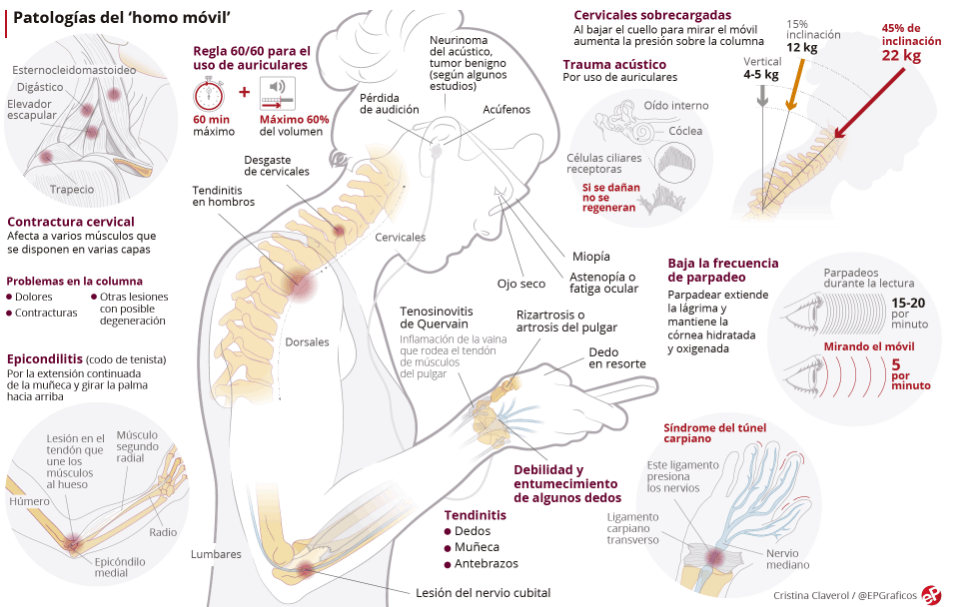
In its Sunday 25 February 2018 edition, El Periódico publishes an article on hyperconnectivity and how this has led to aches and damage to the musculoskeletal system as well as sight and hearing.
Below is the transcription of part of a recent article on sight by Dr. Francesc Duch, head of the ICR Refractive Surgery Department:
“Excess mobile phone use is mainly linked to eye strain or astenopia, whose symptoms normally include: eye irritation, itching, watering, sensation of having something in the eye, blurred vision and headaches, as well as dry eye”, explains ophthalmologist Francesc Duch, director of the Department of Refractive Surgery at the Institut Català de Retina (ICR).
When the visual effort is prolonged, warns the expert, periods of rest are advised, as is frequent blinking and use of fake tears.
“Excess use of screens causes eye strain and dry eye; resting and more frequent blinking are required”
Duch reminds us that digital natives have increased their hours of near visual strain, which means a lower rate of blinking and wider opening of the eyelids, causing greater discomfort from dryness.
Traditionally, he adds, myopia has been attributed to greater forcing of near vision. An increase in its incidence has been demonstrated in literacy campaigns and some recent studies show the same in children that begin to use mobile phones or tablets.
The human eye is capable of seeing at all distances, although distance vision –that of the hunter- is considered more dynamic while near –that of the craftsman– is more static”, explains the doctor, for whom screens do not emit any type of damaging radiation. Filters can reduce the symptoms of astenopia. Prolonged effort or lack of necessary correction (above all in the case of hyperopia and presbyopia) can cause headaches and eye irritation.
The full article is available (in Spanish) by clicking on the following link: https://www.elperiodico.com/es/sanidad/20180224/patologias-movil-tecnologias-6645964
Contact us or request an appointment with our medical team.